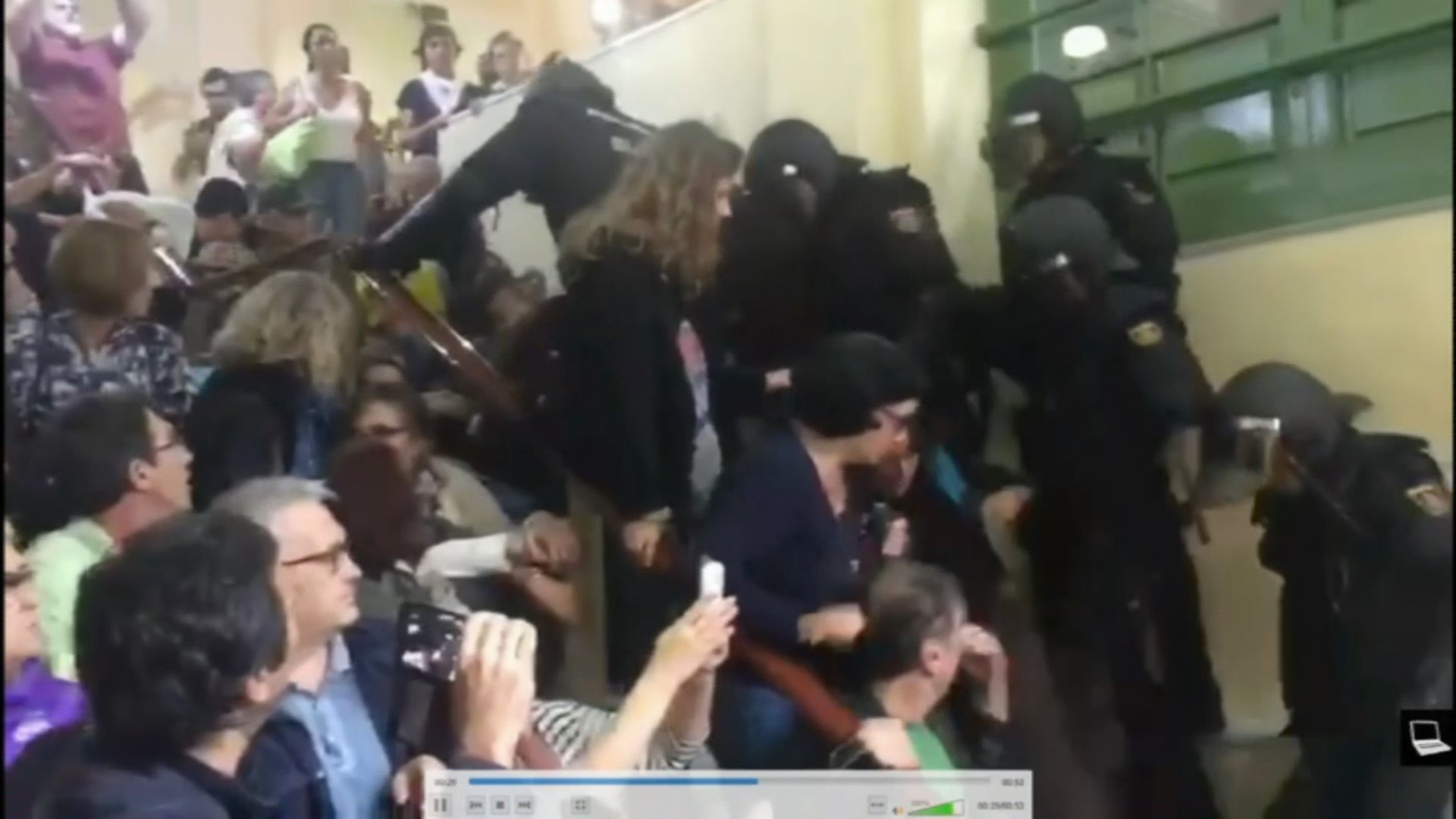The Barcelona Audience court has criticised Spain's National Police Corps for not following their own protocols and for not "exhausting non-violent means" before it turned to the use of force at the polling station at IES Pau Claris in the city during the Catalan referendum on 1st October 2017. It finds there was no "express and decisive order" addressed to the public to clear the entrances to the school and to communicate the warrant the police had.
"The police themselves infringed one of the guidelines for acting imposed in their own protocols on monitoring and controlling crowds", the court writes, referring to the requirement to "exhaust non-violent means, using dialogue as a way to persuade those gathered, authorising the proportional and gradual use of force only when there exists no other option". The court was writing to reject an appeal from police union Sindicato Profesional de Policias, seconded by the state's legal service, asking again to investigate voters at that polling station for having resisted the police.
A different court had previously rejected investigating the voters at Pau Claris, arguing they couldn't be blamed for a situation which resulted from the "failure of the institutions". The Audience today agrees that the legal warrant banning the referendum wasn't addressed to the public, however much it was publicised through the media
The exercise of fundamental rights
Added to this is the fact that, in the case analysed, the Spanish police did not inform citizens gathered there that they had to clear the entrances because the referendum had to be stopped by the police. Moreover, the voters "had gathered, covered by the exercise of fundamental rights which the [Catalan] government authorities had appealed to to legitimise the collective call to political participation."
The Audience court emphasises that the warning of the use of force in sufficient time is an "essential requirement" to guarantee a "prudent and proportionate intervention". Although the Spanish police had the duty to enforce the legal orders, "they were still obliged to respect the fundamental rights of the people, more so when the judicial resolution warned of this extreme, introducing the condition of not altering the peaceful coexistence".
To exhaust dialogue and conciliation
The court also highlights that the type of people who would go to vote -and it mentions families, young people, the elderly, children and adolescents- should have been taken into account, as "context that is far removed from that which typically legitimises the use of force.". "It was, therefore, indispensable to exhaust the alternatives of dialogue and conciliation to dissuade the citizens gathered at polling stations, thus avoiding confrontation with the public force," they conclude.
In the specific case of IES Pau Claris, the court underlines that the people who stood at the entrances attempted to hinder the access of the agents, "chanting pacifist slogans, with their hands up", while the agents "made use of force in a direct manner, without a prior express and decisive order [for them to] give way".
In conclusion, the Audience believes that there was no behaviour constituting severe resistance to the authorities, and writes of "mere and purely defensive actions" in response to the police intervention. Similarly, they warn that it would put people at an "undue disadvantage" to investigate them when they themselves filed a complaint about the police charges.

